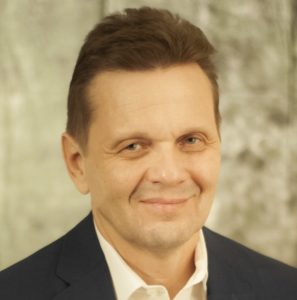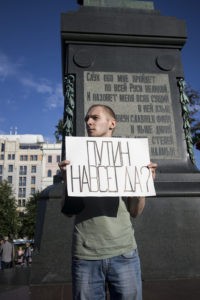 On Wednesday, July 1, Russians voted to approve a series of amendments to the Russian constitution. Among them is the mention of “faith in God” and definition of marriage as a union between a man and a woman.
On Wednesday, July 1, Russians voted to approve a series of amendments to the Russian constitution. Among them is the mention of “faith in God” and definition of marriage as a union between a man and a woman.
Contrary to some pundits, these are not just crowd pleasers to ensure a higher turnout for a popular vote that would permit Vladimir Putin to run for president again when his term expires in 2024. These amendments are consistent with prior steps to position Putin as the leader of the Christian world and defender of traditional morals. As I argued earlier, faith in Russia is considered a political and public matter, not a private matter as it tends to be perceived in the West.
Some notable American conservative Christians, such as Pat Buchanan, find much to like. Putin is not hesitant to speak of living in a world based on biblical values. The Russian state actively encourages traditional marriage and childbearing. Same-sex marriage is not recognized. We have no problem with LGBTQ persons, says Putin, but some things done in the West appear excessive to us. Russians want these people to be happy, but this must not overshadow cultural traditions and family values.
Others, such as Franklin Graham, developed contacts with the Russian Orthodox Church also based on mutual support of “traditional” family values and aversion to Western secularism. Graham had Putin on the cover of the March 2014 issue of his Decision magazine, asking rhetorically, “Isn’t it sad, though, that America’s own morality has fallen so far that on this issue — protecting children from any homosexual agenda or propaganda — Russia’s standard is higher than our own?”
Putin’s Western detractors tend to simply dismiss him as just another authoritarian with an outsize ego. But the Putin appeal in the West is rooted in real issues.
Putin seems to have quite a number of fans in the U.S. According to a recent survey, about a third of Republican voters have confidence in Putin to do the right thing, up significantly since 2015. That is substantially higher than one would expect for a foreign strongman who is said to regularly undermine U.S. interests. Much of that rating seems to be driven by those who perceive Putin as a protector of traditional Christian values and a bulwark against the onslaught of secular political correctness.

On July 1 in Moscow, a man holds a poster declaring, “Putin Forever?” (Bigstockphoto)
Many evangelicals feel uneasy about the increasing marginalization of religion in the West. Some of them find appeal in Putin’s brazen rejection of secularism. Russian powers-that-be proclaim boldly that Russia is the Christian nation. Russian Orthodox priests are routinely invited to participate in various public functions. With Putin’s blessing, foundations of Orthodox culture are taught in public schools. Of course, one does not have to embrace these policies in their entirety in order to see secularism as a major problem, even a threat, to Western societal order.
But there are other elements of Putin’s approach that may feel a bit more foreign to his Western sympathizers. The “propaganda” of same-sex relationships to minors is punishable by jail time, and the domestic violence law goes easy on any battery that does not result in serious injury. After Putin signed the infamous Yarovaya Law, missionary activity outside of places of worship was prohibited. The Russian Supreme Court banned Jehovah’s Witnesses three years ago. Even though Putin publicly called this ban “complete nonsense,” it is still in force.
For these and other reasons, Putin’s Western detractors tend to simply dismiss him as just another authoritarian with an outsize ego. But the Putin appeal in the West is rooted in real issues. This is a time of profound cultural shifts. Faith in God and “traditional” marriage, the very things that the amended Russian constitution would enshrine, are retreating. Even though many Americans still consider them bedrocks of healthy public life, there is a growing sentiment that they are optional. No wonder many feel alienated in their own country and look elsewhere for leadership. Putin with his constitutional amendments seems a fitting model to some of them.
The Putin rating in the U.S. says nothing about the man himself. It does say something about the North American public and the monumental challenges it currently faces. Hopefully, Americans will find the wisdom and strength to meet these challenges, as they have been apt to dealing with problems of years past.
